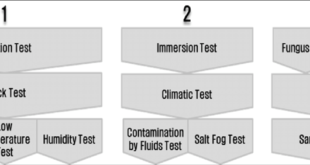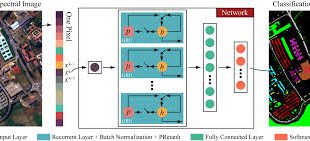China’s construction of military infrastructure along its border with India suggests Beijing is considering military options amidst a territorial dispute between the two countries. China’s aggressive strategy will likely prompt India to respond in kind, leading to a greater concentration of military assets along their disputed border and increasing the …
Read More »TimeLine Layout
February, 2022
-
9 February
Satellite Electric Power Subsystem (EPS) is a vital subsystem providing the power required for mission
Satellite present in an orbit should be operated continuously during its life span. All the satellites require internal power in order to operate various electronic systems and communications payloads that are present in it. The Electrical Power System (EPS) is a vital subsystem whose primary role is to supply satellite …
Read More » -
9 February
MIL-STD-810 standards ensure electronic systems designed, manufactured, and tested to battle harsh defense and aerospace conditions
MIL-STD 810 is a Department of Defense Test Method Standard for environmental engineering considerations and laboratory tests. It is the most popular Military specification used to conduct environmental testing of military products. Given the fact that these products may be exposed to harsh or even extreme conditions, their reliability under …
Read More » -
8 February
Undersea Warfare Training Range (USWTR) is enhancing US Navy’s ASW training effectiveness
Anti-submarine Warfare is Critical for US Navy. Submarines still pose a threat to seaborne forces. More than 90% of joint military equipment (Army, Air Force, Marines) still flows by sea. A great deal of humanitarian aid (tsunami relief, hurricane relief, humanitarian evacuation) comes by sea. Therefore to defend our nation, …
Read More » -
7 February
UK Cyber Security Strategy emphasizes Defence , Deterrence and Cyber technology development
The rapid development of digitalized services and online shopping in the UK has been paralleled with significant growth in cybercrime, leading to greater spending on security in public and private sectors. Organizations’ IT footprints have also become increasingly complex, driving demand for more sophisticated and bespoke cyber solutions. There …
Read More » -
5 February
Aircraft Airworthiness, Certification Requirements, processes and tests
Every Aircraft that moves from the designed and manufactured state into an accepted and authorized safe flying state requires certification. Any new aircraft designed by a manufacturer will need to be submitted to appropriate regulatory authorities for testing for a type certificate. In the US this is the FAA (Federal …
Read More » -
4 February
Enabling technologies of In-Space Assembly (OOS / ISA), automated satellite on-orbit servicing (OOS) and Robotic Manufacturing and Assembly (IRMA)
In the history of spaceflight, almost all spacecraft have been manufactured and assembled on the ground, then integrated into a launch vehicle for delivery into orbit. This approach imposes significant limitations on the size, volume, and design of payloads that can be accommodated within the fairing of a single launch …
Read More » -
4 February
Satellite Image Analysis using Deep learning methods enables Automatic Target Recognition ( ATR) of military targets
Despite substantial advances in global human well-being, the world continues to experience humanitarian crises and natural disasters. Long-term conflicts affect people in many parts of the world, but often, accurate maps of the affected regions either do not exist or are outdated by disaster or conflict. Satellite imagery is readily …
Read More » -
3 February
Global Space Situational Awareness (SSA) Market
There has been exponential growth of space objects, including orbital debris that has increased the in-orbit collision risk. In the year 2019 alone, 385 smallsats were launched & over 1,000 smallsat launches per year is forecasted going forwards. In addition to polluting space, space junk it poses risks for safely …
Read More » -
2 February
Big Data Analytics technology and trends
The complexity of managing projects within the Triple constraints has been increasing day by day. Various factors contributing include shortening product development cycles, changing customer expectations, exponentially increasing usage of the internet as well as more millennials in the project teams. One of the ways to manage this complexity …
Read More »
 International Defense Security & Technology Your trusted Source for News, Research and Analysis
International Defense Security & Technology Your trusted Source for News, Research and Analysis






